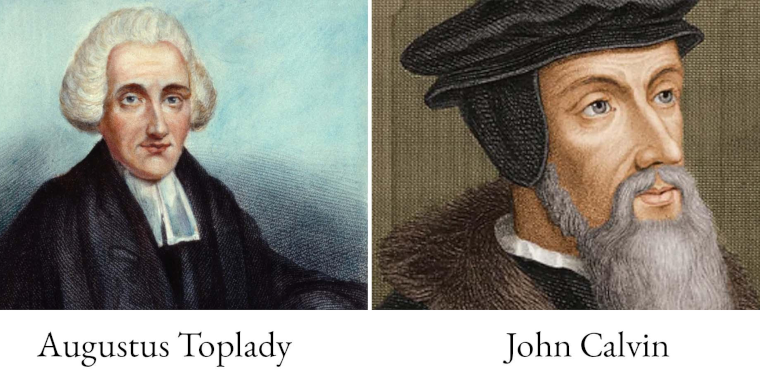ANGLICANISM: DEPRAVED INSTITUTION VERSUS DIVINE INSTRUCTION
By Roger Salter
Special to Virtueonline
www.virtueonline.org
March 23, 2023
Anglicanism may be considered in terms of two aspects i.e., the institutional and the Confessional. Institutionally, Anglicanism refers principally to the Church of England and all those ecclesiastical bodies in communion with her [these days not a sound option]. In a broader sense there are numerous offshoots from the Canterbury connection, or newly established affiliations, that claim the character of a more authentic version of Anglicanism and the more accurate retention of historic Anglican tradition. This patchwork of entities, so diverse, seems barren of substantial commonality. Only nomenclature, denominational labels, suggests community and harmony of faith and practice. The initial appearance is radically misleading. In reality Anglicanism is a hotchpotch of mixed ingredients, many of them indigestible to lovers of Holy Scripture. In descriptive terms the designation "Anglican" is dubious, in fact, on closer inspection, absolutely redundant.
The test of true Anglicanism, that is Reformed Catholicism, is a Confessional matter: Adherence to Holy Scripture, testimony in accord with Scripture [the Word of God], faithful witness to Jesus Christ as Lord and Redeemer, the salvaging of the human soul through divine grace alone, by faith alone [Augustinianism, as resurgent and clarified in the Protestant Reformation], accurate and earnest proclamation to every sinner within sound of the precious message of the mercy of God, and profound reverence and worthy worship offered humbly to the One who dwells above heaven, the Sovereign Lord who shapes our homage and praise by his Word and Spirit. This succinct and woefully inadequate summary of the essence of Anglicanism [our doctrine is on display in the Thirty-Nine Articles and supported by our Liturgy] is shared by all true believers within our motley communion who desire and strive through a sincere life of willing obedience to please God with affectionate heart and holy delight.
While western Anglicanism in its inherited formal structure breaks down through wallowing in horrid and unspeakable evil and blasphemous, apostate thought and behavior (e.g., Welbyism and TEC's dark defection from the faith] those who prize our Cranmerian and Calvinistic heritage [convenient terms of identity; not in honor of mere men], must see to it that we do not forget or ignore the legacy bequeathed to us by former saints and brave martyrs.
Reformed conviction and our communication to this sinful world cannot be blended with the alien elements of Arminianism, Anglo-Catholicism and the renegade influence of liberalism. Christians of other categories have brought much blessing to Christendom as a whole; we learn from them where their teaching is beneficial and their piety exemplary {a personal debt is acknowledged to godly Anglo-Catholics of the stamp of Michael Ramsey, Eric Mascall, John Macquarrie, and Christina Rossetti for her delightful sentiment as a poet e.g. None Other Lamb, O Lord, Seek Us, "light unto thine elect", Who Shall Deliver Me?. ]. It was Charles Spurgeon who wisely advised that we ought to seize truth wherever it is found. However, Reformational Anglicanism [always deemed as part of the Reformed family and brotherhood of churches] ought to be liberated from current ties to function as a movement without any hindrance, restraint and compromise, or an eye to not offending a mis-matched partner. It needs to form its own fraternity [denomination], raise its banner high, and not allow other currents of air to crumple its flight, but with a strong and straight mast confidently and fully spread out the flag of the unedited, untrimmed glorious gospel of the grace of God. In this endeavor pride and mean-spiritedness are not virtues. The wider Church has furnished us with much of our credo and good Christian example.
Thus far, it does not seem there is yet an Anglican entity whole-heartedly devoted to the cause of untempered, consistent and exclusive loyalty to Sovereign Grace. We are preoccupied with institution after institution, but we are overlooking the priority of fealty to the full-orbed instruction of the Lord, his mandate to a faithful Church.
Over a century ago the eminent Scottish Presbyterian theologian William Hastie exhorted the Church of England to "avert destruction or self-dissolution" by returning to the principles of the Reformed Church. Hastie reminds us that our Church should remember that, "The ecclesiastical ideal of its reformers was to make the Church of England the living centre and rallying point of all the reformed Churches; and if it's leaders and guides were to take up this splendid conception again and endeavour to realize it, they might be blessed in doing the greatest work for the Reformed Protestantism that the world has seen since the age of the Reformation." The Theology of the Reformed Church in its Fundamental Principles, pages 96-98, T&T Clark, 1904.
Has that possibility been extinguished. Can Cranmer ride again?
The Rev. Roger Salter was born and raised in Australia. He trained for the Anglican ministry at Trinity Theological College in Bristol, England from 1974 to 1979. He is presently rector of St. Matthew's Anglican Church near Birmingham, Alabama..














